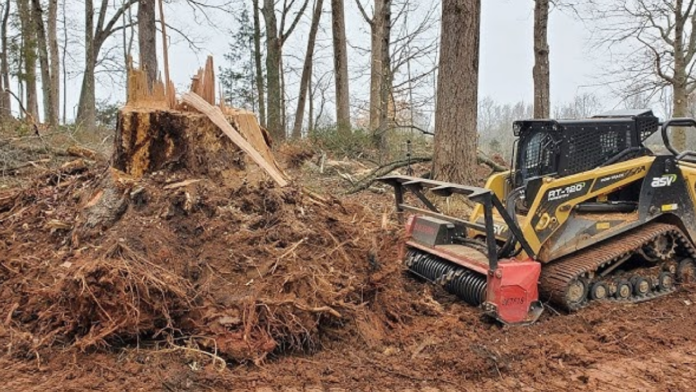Maintaining the proper condition of your mulcher teeth is crucial for ensuring optimal performance and productivity. Mulcher teeth are the cutting components of mulching machines. Over time, these teeth can wear down due to the abrasive nature of the material they process.
As a mulcher operator, it is essential to be able to identify signs of wear and damage in your mulcher teeth to know when it’s time for a replacement. In this comprehensive guide, we will walk you through the key indicators that your forestry mulcher teeth need replacement, helping you maximize the efficiency and longevity of your mulching operations.
Signs That Mulcher Teeth Need Replacement
Here are the signs that tell mulcher teeth need replacement:
Reduced Cutting Performance
One of the first signs that tell mulcher teeth need replacement is a noticeable decline in cutting performance. If you find that the mulcher is not effectively shredding and grinding vegetation as it once did, the mulcher’s teeth have likely become dull or worn out.
Dull teeth will struggle to make clean cuts, resulting in less efficient mulching and a decrease in productivity. Regularly inspect the cutting performance of your mulcher teeth, and if you notice a decline, it’s time to consider replacing them.
Uneven or Poor-Quality Mulching
When your mulcher teeth are in good condition, they should produce consistent and uniform mulch. However, worn-out teeth can lead to uneven mulching, where some parts of the material are ground more effectively than others.
You may notice large chunks of vegetation or uneven mulch output, indicating that the mulcher teeth are no longer cutting efficiently. This uneven mulching can negatively impact the aesthetics of the site and may lead to additional clean-up work.
Increased Fuel Consumption
Worn mulcher teeth require more power to achieve the same level of mulching performance, which can result in increased fuel consumption. If you find that your mulcher is using more fuel than usual without a corresponding increase in productivity, it could be a sign that the teeth need replacement.
By replacing the worn teeth, you can restore the mulcher’s cutting efficiency and reduce fuel consumption, leading to cost savings in the long run.
Excessive Vibrations and Noise
As mulcher teeth wear down, they may become unbalanced, leading to increased vibrations during operation. Excessive vibrations can affect the stability and performance of the mulcher and may lead to premature wear and damage to other machine components.
Additionally, worn teeth can produce more noise during operation, indicating that they are not cutting smoothly. If you notice unusual vibrations or increased noise levels, it’s essential to inspect the mulcher teeth for signs of wear and replace any damaged teeth promptly.
Teeth Breakage and Chipping
Mulcher teeth are exposed to significant forces and abrasive materials, making them susceptible to breakage and chipping. If you notice broken or chipped teeth during routine inspections, it’s a clear indication that the teeth need replacement.
Damaged teeth cannot perform their cutting functions effectively, and leaving them in place can lead to further damage to the mulcher and reduce its overall lifespan.
Reduced Mulcher Speed
Worn-out mulcher teeth can also affect the speed at which the mulcher operates. When the teeth are not cutting efficiently, the mulcher may slow down, leading to decreased productivity and increased operation time.
If you find that your mulcher is not running at its usual speed, it’s essential to check the condition of the teeth and replace any worn or damaged ones to restore the mulcher’s performance.
Frequent Maintenance and Repairs
Regular maintenance is essential for keeping mulchers in good working condition. However, if you find that you are performing frequent maintenance and repairs on the mulcher teeth, it may be an indication that they are reaching the end of their lifespan.
Constant repairs can be costly and time-consuming, and replacing the teeth may be a more cost-effective solution in the long run.
Bottom Remarks
Monitoring the condition of your mulcher teeth is essential for maintaining optimal mulching performance and productivity. Signs that tell mulcher teeth need replacement include reduced cutting performance, uneven or poor-quality mulching, increased fuel consumption, excessive vibrations and noise, teeth breakage and chipping, reduced mulcher speed, and frequent maintenance and repairs.









